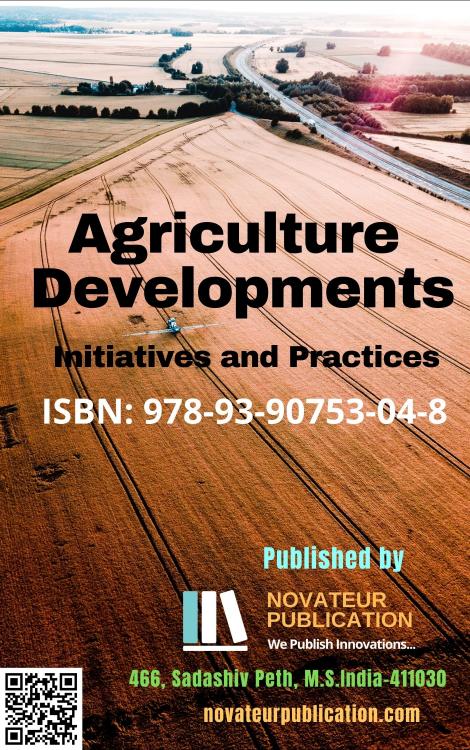New Website!!!!
Visit our new website,
Soil health management is essential for ensuring optimum crop and ecological diversity. Fertilizers emerged as necessary evil for crop industry, particularly the synthetic fertilizers which tend to persist in the soil system, affecting both soil microbial flora and fauna, thus damaging the soil health. Soil health is affected by a broad range of soil functions, such as rhizodeposition, bulk and rhizospheric soil nutrient content, soil organic carbon, pH, moisture, soil enzyme activities, and many others. Fertilizers play a crucial role in crop quality parameters when applied in optimum quantity. The detrimental effect of synthetic fertilizers will initiate from their manufacturing process, during which some toxic gases like NH4, CO2, CH4 etc. get released. However, indiscriminate use of these synthetic fertilizers for a significantly longer duration in the same agricultural field can result in soil deterioration and soil degradation and simultaneously leads to loss of beneficial soil microbes as well. Therefore, for sustainable agricultural production without polluting the environment, integrated approach which consist of organic manures and biofertilizers need to be properly used. The synthetic fertilizers should be blended with organic fertilizers can provide the higher positive impact on microbial population and soil health. Hence, optimum soil health is very essential for maintaining sustainability of agricultural production and soil microbial biodiversity


This work is licensed under a Creative Commons Attribution-NonCommercial-NoDerivatives 4.0 International License.

Novateur Publication
Address: 466, Sadashiv Peth, Pune, Maharashtra, India-411030
Email:novateurp@gmail.com
Publications on this website are liscenced under
Creative Commons Attribution-NonCommercial-NoDerivs 4.0 International License